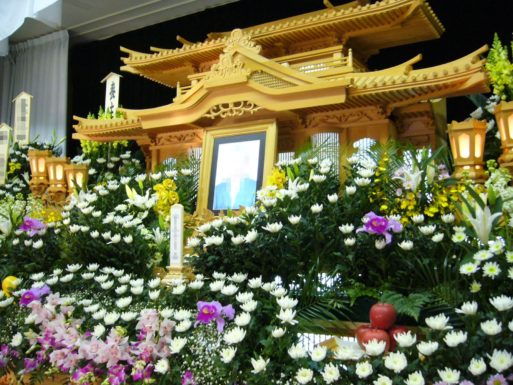 In “Departures,” Yōjirō Takita points out the absurdity of a culture that holds onto rich death rituals while condemning those who perform them. The emotional, sometimes downright hilarious, movie explores why we need death traditions and shines light on a practice that most people would prefer not to think about.
In “Departures,” Yōjirō Takita points out the absurdity of a culture that holds onto rich death rituals while condemning those who perform them. The emotional, sometimes downright hilarious, movie explores why we need death traditions and shines light on a practice that most people would prefer not to think about.
The film follows a classically-trained cellist, Daigo Kobayashi, who is forced to find a new career after his orchestra disbands. Kobayashi finds an ad in the newspaper looking for someone to help with “departures” at a company called NK Agent. Thinking he’ll be working for some sort of travel agency, Kobayashi applies for the job, and is soon horrified to discover that it’s not a travel agency at all. In a series of comedic reveals, Kobayashi finds out that there was a misprint in the paper: “Departures” was supposed to say “the departed,” and NK Agent stands for “Nokanshi Agent,” the Japanese word for those who handle the dead.
Kobayashi wants nothing to do with the death industry, but his new boss talks him into staying, promising an amazing salary. He grudgingly accepts the offer, and as the film progresses, he becomes more emotionally involved in the work than he ever thought possible.
At first, he fumbles with his new role, unsure of what to do and generally repulsed by the sight of death. Limbs slip out of his hands; he throws up after seeing his first body, and he utterly botches a postmortem makeup ritual, much to the horror of the surviving family.
By the middle of the film, the struggles that Kobayashi faces soon become less about the work itself, and more about his loved ones’ reactions to his new career. Although Japan is a deeply traditional culture that honors the dead in elaborate funeral rites, many Japanese are terrified of death and those who handle the dead. Nokanshi have long been considered a necessary part of funerals, but they are also thought of as “untouchables.” Because they work with the dead for a living, they are often considered unclean and are excluded from many social circles.

Credit: wikipedia.org
The most impactful scenes in “Departures” show Kobayashi changing the perspectives of those around him. At first, he lies about his line of work to his wife and his friends, fearing their rejection. When they find out how he has been making a living, they are repulsed — until they see him perform the rituals for themselves. What they thought of as an ugly line of work turns out to be artistic, emotional and beautiful. Kobayashi cares for the dead in the same way that he plays the cello, with a tenderness and dedication to his art.
The film’s theme is best spoken by Kobayashi’s boss, Sasaki. After Kobayashi stumbles upon a photo of Sasaki’s wife, Sasaki says, “All married couples are eventually separated by death…but it’s tough being the one left behind. I dressed her up and sent her away…My very first client. I’ve been working in this business ever since.” The movie is a memento mori for viewers, reminding us that one day we all will die, as will everyone we love.
With “Departures, ” Yōjirō Takita demonstrates that those who work with the dead are part of all of our lives. What’s more, far from being reviled by society, they deserve respect and admiration for the kindness, skill and compassion they bring to their work.

 “Departures” by Yōjirō Takita
“Departures” by Yōjirō Takita


 “As Tears Go By” by Marianne Faithfull
“As Tears Go By” by Marianne Faithfull

 Funeral Favors Offer Visitors a Tangible Memento
Funeral Favors Offer Visitors a Tangible Memento















